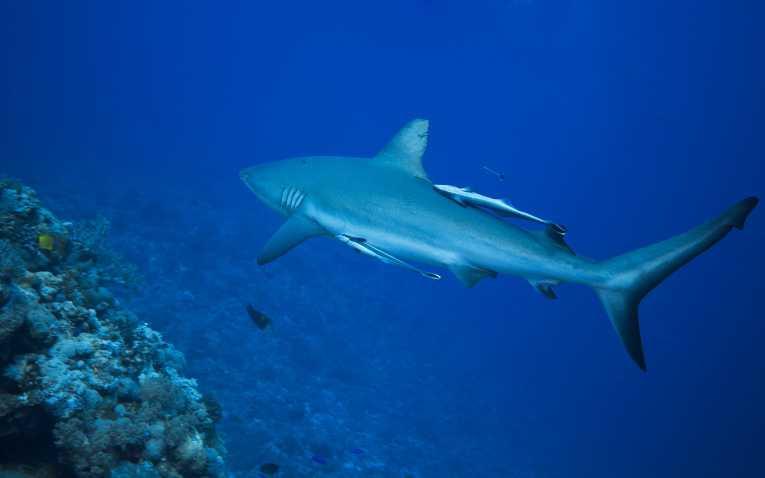According to an expert panel of scientists, more marine species are at risk of disappearing from the world's oceans than at any other time in human history. A report released today, entitled 'State of the Oceans', is the first to consider the cumulative effect of all the pressures on ocean species. Scientists found that the effects of climate change, in conjunction with overfishing and nutrient run-off from farming, have already caused a dramatic decline in ocean health.
In Earth's history there have been five mass extinction events. Factors including decreased oxygen in the ocean (hypoxia), increased ocean temperatures and increased ocean acidification have been present in every mass extinction event.
Worryingly, the report finds that these factors are now coming into play in the world's oceans, impacting on marine species. Additional stresses on marine systems, such as over-fishing and pollution, are combining to contribute to a severe decline in marine species populations. This decline is occurring at a much faster rate than anyone had predicted.
"The findings are shocking," says Dr Alex Rogers, Scientific Director of the International Programme on the State of the Ocean (IPSO). "This is a very serious situation demanding unequivocal action at every level. We are looking at consequences for humankind that will impact in our lifetime, and worse, our children's and generations beyond that."
Changes occurring more rapidly than predicted include:
· Melting of the Greenland and Antarctic ice sheets
· Release of methane trapped in the sea bed
Increasing levels of CO2 contributes to rising temperatures. In turn, increased temperatures lead to more CO2 being absorbed into the ocean. Increased CO2 in the ocean leads to increasing ocean acidification and hypoxia, which are devastating for marine life. In addition, increased temperatures lead to 'coral bleaching'. In 1998, a single mass coral bleaching event killed 16% of all the world's coral reefs. Coral is a vital habitat for many species and the loss of coral reefs has a huge effect on marine species.
Recommendations include:
· Stopping over-fishing, particularly in the open ocean
· Reducing pollution
· Decreasing greenhouse gas emissions, including CO2
"We have to bring down CO2 emissions to zero within about 20 years," Professor Hoegh-Guldberg told BBC News.
"If we don't do that, we're going to see steady acidification of the seas, heat events that are wiping out things like kelp forests and coral reefs, and we'll see a very different ocean."
Co-author of the report, Dan Laffoley, says "The world's leading experts on oceans are surprised by the rate and magnitude of changes we are seeing. The challenges for the future of the ocean are vast, but unlike previous generations, we know what now needs to happen. The time to protect the blue heart of our planet is now, today and urgent."
Top Image Credit: © Sebastien Bure










